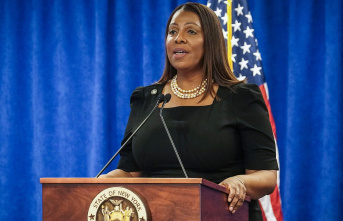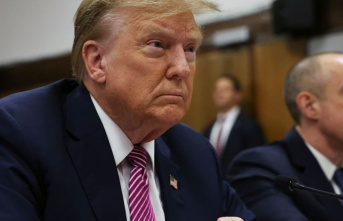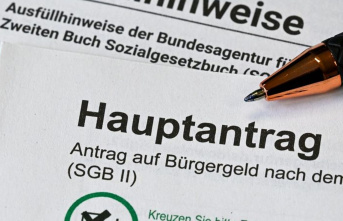The decision defies allied leaders who want to give the evacuation more time and opens Biden to criticism that he caved to Taliban deadline demands.
Biden stated at the White House that "every day we're on ground is another day ISIS-K seeks to target the airport, attack both us, allied forces, and innocent civilians". He was referring to the Islamic State group affiliate in Afghanistan, which is well-known for carrying out suicide attacks on civilians.
He stated that the Taliban were cooperating with security forces and that they are holding on to their territory despite numerous violent incidents. He said that it was a fragile situation and there is a risk that it will collapse as the time passes.
Recent reports of rights violations have prompted concern about the fate thousands of fleeing citizens who fear reprisal from the Taliban. The United States has increased its airlift in recent days. According to the Pentagon, 21,600 people were evacuated during the 24 hour period ending Tuesday morning. Biden stated that 12,000 additional people were flown out in 12 hours. These include both U.S. military and charter flights.
Biden stated that he had asked both the Pentagon and the State Department to prepare evacuation contingency plans, which would allow him to adjust the timeline for full withdrawal if necessary.
Officials from the Pentagon expressed confidence that the airlift, which began on Aug. 14, will get all Americans out of Afghanistan by Tuesday. This was the deadline Biden had given long before the Taliban took control. Unknown numbers of foreign nationals are still in Afghanistan, and they are trying to escape.
After being expelled in the U.S.-led invasion of 2001, the Taliban have taken control of Afghanistan for nearly 20 years. They insist that the airlift should end on August 31. Biden's decision to extend his stay could spark a conflict between the Taliban and the 5,800 American troops who execute the airlift at Kabul Airport.
Zabihullah Mujahid, a Taliban spokesperson, said that the U.S. should adhere to its deadline and that it would not allow Afghans to be evacuated on evacuation flights. He said that the Taliban would block Afghans from the airport's roads, but allow foreigners to enter to stop large crowds from gathering.
John Kirby, the Pentagon spokesperson, stated that Aug. 31 is enough time for all Americans to leave, but was less specific on the completion of the evacuation of all Afghans at risk. According to Kirby, approximately 4,000 American passport holders and their families had been evacuated out of Kabul by Tuesday.
Kirby stated that "we expect that number will grow in the coming days."
The Pentagon announced that several hundred U.S. troops had been withdrawn as they were no longer required to carry out the evacuation mission. Kirby stated that these troops are maintenance personnel, headquarters staff and others. He said, "It will not have any impact on the mission in hand."
Although it is not clear how many Americans want to leave the country, their status remains a hot political issue for Biden. Some Republicans were furious Tuesday that the U.S. seemed to be following a Taliban order. Rep. Steve Scalise from Louisiana stated that it was essential to make it a priority to inform the Taliban that all our personnel will be expelled, regardless of the timeline.
California Democratic Rep. Adam Schiff, Chairman of the House Intelligence Committee said Monday that it was difficult for him to envision wrapping up the airlifts by month's end.
One of the major refugee groups in Afghanistan said that many Americans, including American citizens, were still finding it difficult to pass the Taliban checkpoints or the crushing crowds outside the airport.
Krish O'Mara Vignarajah is the president and CEO at Lutheran Immigration and Refugee Service.
In April, Biden announced that he would end the U.S.-led war on terror. It began in October 2001. The war was already ended in May by former President Donald Trump, who had previously reached an agreement with the Taliban.
Biden, however, waited for the Taliban to take power after the U.S.-backed government collapsed and its army was destroyed before he began executing an aerial lift.
The world has been stunned by the tragic scenes at the airport. Last week, Afghans poured onto the airport's tarmac. Some clung to a U.S. military transport aircraft as it took off. Later, they fell to their deaths. Seven people were killed that day and seven more died in panicked stampedes on Sunday. A gunfight resulted in the death of an Afghan soldier.
Boris Johnson, the British Prime Minister, stated that the Group of Seven countries will not recognize any Taliban government unless it provides a guarantee that people can leave the country at their own risk. This is both before and after August's deadline. William Burns, director of the U.S. Central Intelligence Agency met in Kabul with a top Taliban leader a day earlier. This extraordinary meeting was a reflection of the gravity of the crisis as well as America's need for coordination with a Taliban group that it accuses of human rights violations.
For the moment, all air traffic into and out of Kabul Airport is coordinated by the U.S. military. However, after the U.S. pullout, the Taliban will take control.
A U.S. official claimed that Burns, the CIA Director, met with Mullah Abdul Ghani Barkadar, the Taliban leader -- an exceptional moment for the U.S. spy service, which has for over two decades targeted the Taliban in paramilitary operation. It wasn't clear what they discussed.
Baradar was arrested by the CIA in Pakistan in 2010. He spent eight years in a Pakistani jail before being released by the Trump administration in 2018. This happened ahead of U.S. peace negotiations with the Taliban.
Mujahid, however, refuted the notion that Afghans must flee. He claimed that the Taliban had brought security and peace to Afghanistan. He claimed that the main problem was chaos at the airport and accused the U.S. with luring away engineers and doctors, on whom the country depends.
Michelle Bachelet, U.N. human right chief, stated earlier that she had credible reports about "summary executions", of former security forces and civilians who were not fighting, the recruitment and training of child soldiers, and restrictions on women's rights to travel and school attendance.
She didn't specify the source or timing of her reports.
It was difficult to determine the extent of abuses and whether they are contradictory to Taliban public statements or indicative of disunity within its ranks.
Between 1996 and the U.S.-led invasion of 2001, the Taliban largely kept women in their homes, banned music and television, and chopped off the hands and bodies of suspected thieves.











